The Division: Massive by name...
The quiet Swedish studio breaks cover with a smart new wave MMO.
Petter Mannerfelt and Nicklas Cederström from Massive Entertainment sat in a dark corner of Ubisoft's E3 stand, wincing. The room was weird: a prefab triangular closet with a few chairs, no lighting and no roof, it was at once secluded and under constant, bone-shaking sonic bombardment from the synthesised thump and crash of trailers and Just Dance routines roaring out of the loudest sound system on the show floor. In the suite next door, Massive's game The Division was being demonstrated to showgoers through wireless headsets. It was the only way to be heard. Cederström said that after a day talking to reporters on the stand, their throats would be so raw they'd have to communicate with each other using hand gestures.
Still, the two youngish Swedes were ebullient. They crouched over my voice recorder, shouting into it, talking over each other in their excitement at finally being allowed to speak publicly about their game, getting carried away and almost spilling details scheduled for a later PR beat. "Stop talking about features!" Cederström, the creative director, warned Mannerfelt, the production director, at one point. "I want to talk about everything," his colleague replied. "We show such a small part that it's... we have so much more!"
What a way to break radio silence. If there was an award for the most talented yet quietest game studio in the world, until a month ago Massive would have been a contender for it. Its last headline credit was on 2007's very well regarded Cold War strategy game, World in Conflict. A year later the Malmö outfit, which has an excellent reputation within the industry, was bought by Ubisoft. Then... almost nothing. Massive chipped in on development of Assassin's Creed and Far Cry games. It was strongly rumoured that it was working on a massively multiplayer game, and then it was linked to Ubi's Tom Clancy licence. But, given the parlous state of MMOs, it was still easy to worry that Massive would end up as just another outpost in Ubisoft's globe-spanning blockbuster sweatshop.
Not a bit of it. The Division is all Massive's work - right down to the next-generation Snowdrop engine - and it couldn't be any more confident or, importantly, any more modern. Persistent online worlds take so long to develop that some of them end up looking old-fashioned before they're released. The way the studio has cautiously wound up production has deflected that problem, though.
Mannerfelt started work on the technology as lead programmer four or five years ago. Then the opportunity to work on the Clancy licence fell in line with Massive's internal desire to make an online RPG. Committing the project to next-gen consoles (PC is still possible, but unconfirmed) was the next step, followed by the decision about the game's scenario, both of which fed back into the finer details of design. So although in some senses The Division is far down the road, it's only been in active development - by a team of 200 at Massive - for about a year. That's how it manages to look fresh ahead of a 2014 release date, joining Bungie's Destiny at the crest of the new wave of MMOs-by-any-other-name - seriously, don't call them MMOs - that crashed over E3 last month.
Although it presents itself as a blockbuster action game, with a lot of taking cover and shooting from behind ruined cars, Massive was straining at the leash to proclaim The Division a dyed-in-the-wool role-playing game
Massive isn't quite as keen as Bungie to disguise The Division's roots, however, billing it as an "online open-world RPG". "This is as online as it gets," said Mannerfelt, who at one point corrected himself after using the word "solo", keen to efface any suggestion that you might play The Division offline (you can't) or on your own. "Big servers, completely dedicated servers, we handle lots of users simultaneously." And although it presents itself as a blockbuster action game, with a lot of taking cover and shooting from behind ruined cars, Mannerfelt and Cederström were straining at the leash to proclaim The Division a dyed-in-the-wool role-playing game.
"The thing is that we love RPG games... It has everything, you know: RPG is tied to player progression, finding cool new loot to upgrade your character, customising yourself the way you want to be, crafting and also things such as group content, PVP," said Cederström. "Sure, we have a shooting mechanic, but it's really the smart use of skills and the ability to level up and find new paths through the trees to optimise your character - that's the really interesting part for us." Unlike such rivals as Destiny and Borderlands, The Division isn't selling itself as a hybrid, and Massive is planting its feet firmly on the side of the dice roll.
If anything, it's the scenario, rather than the console-friendly presentation, that really makes The Division stand out among its peers. Online worlds rarely break with fantastical escapism - even in the case of modern-day games like The Secret World, with its magic and occult conspiracies - but The Division has the gritty credibility stipulated by the Clancy name, and a downbeat set-up ripped from only the slightly more paranoid news headlines. A severe viral epidemic has exposed the fragility of first-world society, and amid crashing markets and infrastructure, clandestine operatives are struggling to bring the chaos under control in New York City.
Authorised Clancy fictions can come across as a bit dour - and it's also fair to point out, as Adi Robertson does about The Division's stable-mate Watch Dogs, that efforts to give video games a topical edge rarely run more than skin deep. To give Massive credit, however, its "mid-crisis" scenario isn't just refreshing for its genre; it's been thoughtfully interpreted in some proper online game design.
The most interesting concept in The Division is "dark zones". These are contaminated areas of New York where power and food are in short supply and lawlessness is at its worst. They're also the PVP zones of the game, where players are free to attack each other; you're always safe from player attack outside them. The missions you can undertake in the dark zones offer the best loot in the game, but it has to be extracted and decontaminated before you can use it fully - and the flare you have to send up for an extraction flags you to other players, who have 90 seconds to attack your position and claim the loot from you.
"We're going for that kind of tension where you can't trust people that you meet" - Nicklas Cederström, creative director
"[Dark Zones] have missions just like every other part of the game. However, you can't trust anyone when you're in there except your group mates. We're going for that kind of tension where you can't trust people that you meet," Cederström said, adding that Massive is very proud of this design - and rightly so. Recalling the way Eve Online handles different levels of security across its galactic frontier, it's the sort of multiplayer dynamic that only MMOs can do, but is often lost in these games' desperation to be all things to all players at all times, eradicating the sense of risk that can be the most exciting thing about them. The Division offers that risk, just clearly and cleverly contained.
It's also mentioned that players will be able to influence New York itself, bringing sectors under control and the city back alive by chaining missions together. But when I asked how this will work - will the city exist in the same state for all players, or might new players always face the same level of chaos - Cederström demurred. "That is tied to a metagame system that we're not talking about yet."
Oddly, something else the pair teased me about was the potential use of Xbox One's cloud computing capabilities. Most third-party developers I spoke to at E3 had no plans to make use of this, and I assumed this would go double for Massive who will be running their own servers for The Division in any event. But Mannerfelt smiled knowingly and said: "We might have some surprises in store."
Mannerfelt and Cederström were a lot more forthcoming about what some Ubisoft corporate mandate has confusingly termed "companion gaming". This actually means "second-screen" gaming on tablets and phones that ties into the console experience. It's clearly a huge internal push for the French publisher, and was featured in almost every game it showed at E3; The Division had by far the most promising implementation of it.
In the demonstration, a player using a tablet was shown flying a drone in support of the group of console players on the ground, observing them from above in real time. The drone can attack enemies with missiles as well as performing useful support roles such as healing, marking and debuffing targets. According to Cederström, it has its own progression path and upgrades, and can be played separately from console groups; it'll work anywhere with internet access (though "on the bus or the train", as he suggested, will probably only work if you live in a country with a networking infrastructure like Sweden's).
Although Mannerfelt reckons most drone pilots will be regular players of The Division who just happen to be away from their consoles, perhaps the most appealing aspect of this app is as a way to blend persistent online worlds with couch co-op. Imagine running missions on your PS4 with a friend or partner accompanying you on an iPad. It's a perverse truth about this most social form of gaming that it can often be, in real life, an intensely solitary pursuit, but shared experiences of online worlds can be magical. (One of my first online gaming experiences was Phantasy Star Online; my girlfriend at the time would play, while I served as her typist and emoticon designer.)
This is a cutting-edge online game, one that doesn't seek to dilute the MMO experience even as it translates it to the console gaming vernacular
"Also, this is only one of the tablet apps we have for the game," Mannerfelt added. "This is syncrhonous, we will also have asynchronous tablet gaming. Basically... ah, I shouldn't say." In the end, he couldn't help himself, hinting that you'll get remote access to the game's trading economy before Cederström shut him up.
They were good humoured about it, but it must be painful for a studio with the talent and ambition that Massive clearly has to keep on gagging itself after years of silence on the sidelines. The Division speaks for itself, though. This is a cutting-edge online game, one that doesn't seek to dilute the MMO experience even as it translates it to the console gaming vernacular.
Just before Ubisoft's relentless sound system finally defeated us, Mannerfelt made a simple statement, something you only hear from developers every so often, and - certainly at this level - rarely with such justification. "It's important for us to not do an old game again," he said. "We want to do a new game."



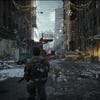

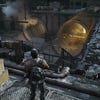


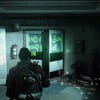
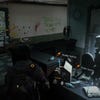
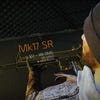


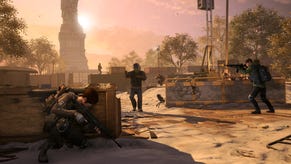
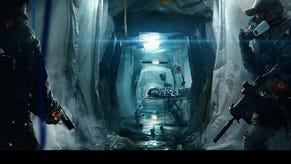


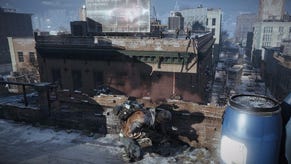
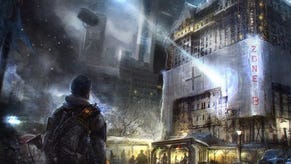
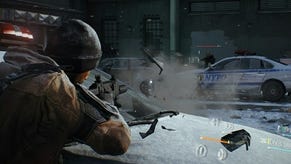
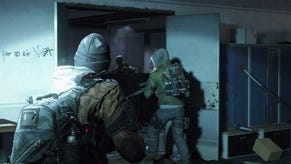



.png?width=291&height=164&fit=crop&quality=80&format=jpg&auto=webp)



